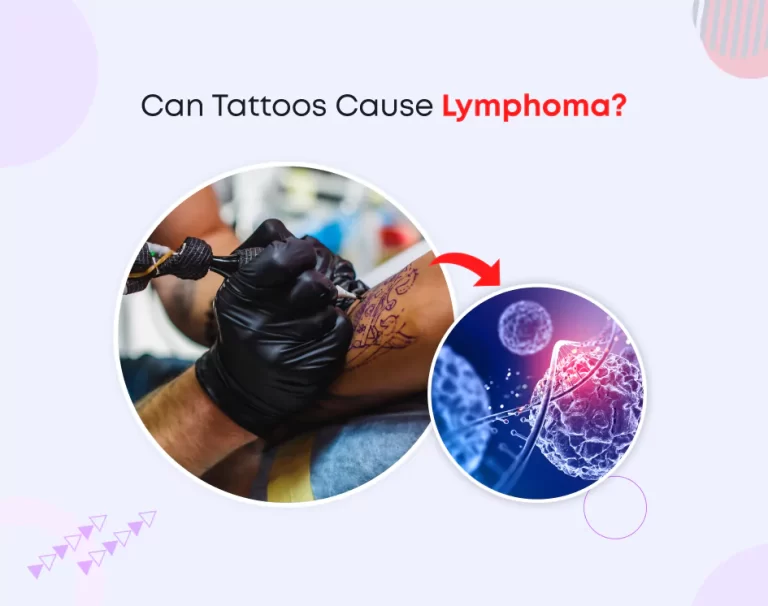
Can Tattoos Cause Lymphoma?
Tattoos have surged in popularity over the past decade, becoming a symbol of self-expression and artistry. With millions of people embracing body ink, questions regarding the long-term health risks associated with tattoos continue to arise.
One such concern that has sparked curiosity and caution is the potential link between tattoos and lymphoma. Can getting inked actually lead to cancer? Let’s delve deep into the research and separate the myths from the facts.
Tattoos and their Composition
Tattoos are made by inserting ink into the dermis layer of the skin with the use of needles. These inks are made from a variety of substances, including heavy metals, organic pigments, and preservatives. While tattoos are generally considered safe when done by professionals in hygienic environments, the chemical composition of tattoo ink raises questions about potential adverse effects on health.
What is Lymphoma?
Lymphoma is a type of cancer that affects the lymphatic system, which is part of the body’s immune defense. There are two main types of lymphoma:
Both types originate in lymphocytes, a type of white blood cell. While the exact causes of lymphoma are not fully understood, certain risk factors like genetics, immune disorders, and environmental exposures may increase the likelihood of developing the disease.
The Link Between Tattoos and Lymphoma
The idea that tattoos could contribute to lymphoma is largely based on the concern surrounding the ingredients in tattoo ink. Certain inks may contain potentially carcinogenic compounds like cadmium, lead, and arsenic. Over time, the body may break down and absorb these particles, leading to speculation about long-term health risks.
A study published in 2017 highlighted that tattoo ink pigments can migrate to the lymph nodes, causing enlargement and pigment accumulation. However, while this process may indicate that tattoo ink travels through the body, it does not necessarily prove a direct link to lymphoma.
Key Points from Research:
- No conclusive evidence suggests tattoos directly cause lymphoma.
- Some cases of skin reactions and inflammation have been reported, but these are typically non-cancerous.
- Lymph node swelling from tattoo pigments is often benign and not indicative of lymphoma.
Case Studies and Anecdotal Evidence
Though rare, there have been isolated cases where individuals with extensive tattoos developed lymphoma. However, medical professionals stress that correlation does not imply causation. Factors such as genetic predisposition, lifestyle, and environmental exposures often play a more significant role in cancer development than tattoos alone.
Common Health Risks Associated with Tattoos
While lymphoma may not be a prominent risk, tattoos can pose other health hazards if not done correctly. Some risks include:
- Infections: Unsterile equipment can lead to bacterial infections.
- Allergic Reactions: Certain ink pigments can cause allergic responses, resulting in itching, swelling, or rashes.
- Scarring and Keloids: Improper healing may lead to raised scars or keloids.
- Bloodborne Diseases: Hepatitis B, C, and HIV can spread through contaminated needles.
How to Mitigate Health Risks When Getting a Tattoo?
If you’re considering getting a tattoo, follow these precautions to minimize health risks:
- Choose a Reputable Tattoo Artist:Select a reputable tattoo artist who is licensed and adheres to strict hygiene standards.
- Research Ink Quality: Ask about the types of ink used and opt for non-toxic, hypoallergenic options.
- Monitor for Reactions: Pay attention to signs of infection or prolonged inflammation and seek medical attention if needed.
- Aftercare is Key: Follow all aftercare instructions to promote proper healing and avoid complications.
Should You Be Concerned?
The fear that tattoos can cause lymphoma is understandable but not strongly supported by scientific evidence. While tattoo pigments can migrate to lymph nodes, the likelihood of this leading to lymphoma is minimal. However, staying informed and making educated decisions about your health and tattoo choices is essential.
Ultimately, getting a tattoo is a personal choice. By selecting a professional artist and prioritizing safety, you can reduce potential risks and enjoy your body art with confidence.






